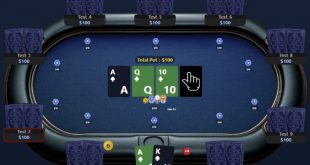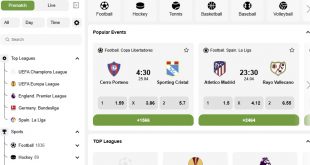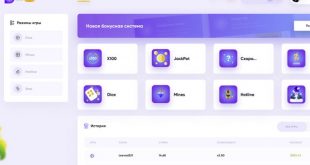Eckmar 2.0 MarketPlace Script 2.0
Requirements
VPS with at least 2 GB of RAM
A daemon for each coin included on the marketplace
Server requirements: (what software is required for VPS)
PHP 7 (recommended and tested on version 7.2)
SQL database (MySQL, PostgreSQL, SQLite, SQL Server)
Elasticsearch (a search interface that will track search records and ensure high search performance)
Redis (optional, but will significantly improve the performance of the application)
Features
Categories
The category system is very dynamic. Categories can be nested indefinitely. Categories are created, deleted and edited in the admin panel.
Detailed home page
At the moment, there is a placeholder text on the home page that will represent the most important functions of your marketplace.
In addition, all users can see the leading suppliers (suppliers with the most sales), recent orders (products from orders completed recently, as well as the cost of the order, but without information about the buyer or seller), growing suppliers (suppliers with the most sales over a specified period of time, by default 7 days).
Official mirrors are a place where you can specify which other links can be used to get to your site.
Password Reset
The password can be reset using the PGP key added to the account (more about PGP below), or using the mnemonic key provided during registration. The mnemonic key is displayed only once and must be written down on paper. During registration, it is instantly hashed (bcrypt) and stored in RAM only for a short time during display, after which it is manually deleted from memory in addition to automatic PHP garbage collection.
PGP
Each user can add their own on PGP key, which is used for several functions. Vendors must have PGP and 2FA enabled before they are allowed to switch from user status to vendor status. If you have an active PGP key, you can reset your password using it or enable 2FA to log in. Each PGP key must be verified before being linked to an account, and if you want to add a new key, you must first sign the message from the old one.
Messages can also be encrypted using the user’s PGP key, if present (this is not forced, the user’s choice).
2FA (two-factor authentication)
If a user has a PGP key linked to their account, they can enable 2FA. If this option is enabled, login to the marketplace will be prohibited unless a randomly generated message is signed with a key.
Wish List
Customers do not need to save links to products for later. Each product has an «Add to Wish List» button that you can use, and they are saved in the user’s personal list for future use.
Suppliers
Regular users cannot place products on the Marketplace. To place products, you must become a supplier. Before updating, you must have the PGP and 2FA key enabled in your profile. The supplier’s price can be set in the marketplace configuration. The supplier can use any of the available coins to acquire supplier status. With each sale of the supplier, a percentage of the sale price is sent to the addresses of the trading platforms.
Setting up a Vendor Profile
Vendors can customize their profile using predefined profile backgrounds and a short personal description.
Supplier levels and experience
Each new vendor starts at level 0 and progresses further depending on performance. The experience and the number of levels are dynamic and customizable. Multipliers determine how much experience is provided/taken from vendors for each action. EXPERIENCE is provided/taken according to the formula: value in US dollars*multiplier
Feedback
After each completed purchase, suppliers can leave feedback. The types of reviews are positive, neutral, and negative, and they affect both the supplier’s evaluation and the product’s evaluation.
A few coins
Probably the most important system is the Coin System. It is completely dynamic, which means that new coins can be added at any time. The standard version of the marketplace comes with Bitcoin and Monero enabled. For each added coin, an unlimited number of marketplace addresses can be set in the marketplace configuration (used to receive commissions for purchases), and if there is more than one address, the address for receiving the commission will be randomly selected (for each purchase).
Types of goods
There are two types of products. Physical and digital products. Depending on the type, various options are displayed when creating and purchasing a product.
Both digital and physical products support offers and custom units of measurement (product, kg, gram, piece…). With offers, suppliers can provide discounts on purchases depending on quantity. For example:
The price for 1 product is $ 100
The price for 10 items is $ 90
The price for 20+ products is $ 80
Each of them is considered an offer and can be added/removed at any time.
Digital products support automatic delivery, which is optional. If the check box is selected, the autofill system is used. Each line in the text field is treated as a separate element and will be the quantity of the product. It will be sent to the user instantly upon purchase.
Physical products have delivery options. Each delivery option includes: Name, Price, Expected delivery time, Minimum quantity for delivery, Maximum quantity for delivery. Physical goods may also include/exclude countries from delivery.
Markdown style
Instead of plain text, the product description and rules support the markdown style. All tags are supported except the URL tag.
Making purchases
When a user decides to purchase any product, they can pay with any coin supported by the marketplace (and the vendor, since vendors can choose which coins they want for each product). There are no wallets or anything like that. Users do not need to keep money on the marketplace all the time. A random address is generated for each purchase, and it is used only for this purchase.
Contract
Escrow is present at every purchase by default. When buying, the address of the trading platform is generated, where the funds will be stored. If the purchase is completed, if it is marked as delivered, or the dispute is resolved. If the buyer is unhappy with the purchase, he can open a dispute and potentially (based on the administrator’s decision) get his money back. Upon completion of the purchase, depending on the result, the money will be sent from the temporary purchase address to the buyer/seller and to one of the storage addresses of the trading platform.
Cart
If a user wants to buy more than one product (possibly from different sellers), they can add them all to the cart and then place an order only once.
Messages
The most important feature of messages is security. The Marketplace uses the latest algorithms and public key cryptography standards (for example, XChaCha20-Poly1305-IETF) to encrypt messages between users. During registration, public and private keys are created for each user. An encryption key is created based on the user’s password, and this key is used to encrypt the private key while the public key is open. When user A wants to send a message to user B, keys are exchanged. User A encrypts the message using the public key of user B, and this message is stored in the database. Only user B can read this message when he logs in and decrypts his messages with a password. This system makes messages safe and unreadable by anyone, including the marketplace administrator or, in principle, anyone who can access the database.
Messages are organized into dialogues. You can start several conversations at the same time.
Notifications
Users will receive notifications about most of the actions that occur in the marketplace in relation to them. Here are some examples: A new message, a purchase status update (item shipped, item delivered, etc.), supplier actions (feedback), and so on.
They can be read in the user account panel and deleted at any time.
Bitmessage
Marketplace may be able to connect to the Bitmessage daemon. When connected, users can add their Bitmessage addresses and receive notifications redirected there. This means that they will still receive notifications even if they are not currently logged in and they do not need to update anything.
Before sending notifications, Bitmessage addresses must first be verified.
JavaScript Warning
An optional warning can be enabled in the marketplace configuration. If the user has JavaScript enabled, a message will be displayed notifying them of security issues.
Support
Users can contact customer support about any problem they encounter. Administrators/moderators will see these requests in the admin panel and will be able to respond or close them.
The Admin Panel
Most of what happens on the marketplace can be viewed directly in the admin panel. Administrators can access all the functions of the admin panel.
Moderators
A modular permission system is currently supported, which means that administrators can grant/take away some access to moderators (for example, support staff can only respond to requests and resolve disputes, the community manager can only send bulk messages, etc.). Currently supported features:
Index – Basic information
 ScriptMoney PHP Scripts Free Download – Nulled
ScriptMoney PHP Scripts Free Download – Nulled





¿Qué quieres decir con VIP ? ¿Cómo se descargan los archivos ?
Haga una suscripción VIP en el sitio y descargue , todo gratis – https://script-money.cc/hidden/subscription-to-hidden-content.html